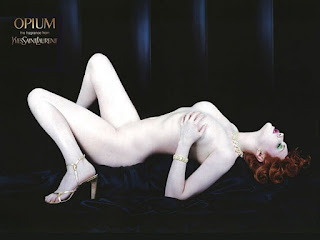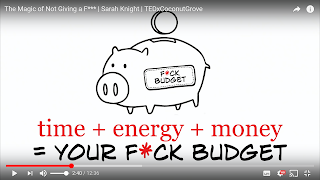BBC PERFUME DOCUMENTARY PART 2, "BOTTLING THE MEMORY"
PART 2, "BOTTLING THE MEMORY"
What I learnt and thought...
This part of the documentary taught me how perfumery is an esoteric artistry and forever will be. In fact, more astronauts exist than perfumers. The job of a perfumer is to capture the moment and take us back to past times in our lives by triggering our memories using scent; it is proven that scent and emotion interlink. "The message is romance, the language is is molecules"; this language is spoken by perfumers, our noses, artists, scientists and philosophers. Perfumers are some of the worlds most meticulous people, which is why the principle of the biggest school for noses run by the biggest chemical company in the fragrance world, 'Givaudan', just outside of France, looks for students that are cultured genius' with winning personalities. In these schools only technique can be taught, not creativity, which is why perfumers have such a rare and natural talent, and some year, literally no one is accepted into the business, as no one is up to the high standard that is searched for. Before the students can produce any fragrance, they must absorb a huge body of knowledge about scented raw materials, both man-made and natural, and memorise over five-hundred raw materials and learn how to combine them to produce something good. They must also grasp the advanced ability to estimate the percentages of each raw material within a perfume compound, which sounds like an extremely difficult task to me, an ordinary person. In the documentary, a perfumer explains how colour and texture can link to scent, which is a fact that I was unaware of and found intriguing.
It is explained how there is a desire in humans to separate our bodies from the way they naturally smell, especially in the American market, and so their is a desire to smell of a synthetic scent - something that isn't quite real, like the typical perfume smells we are used to and are immediately reminded of when we hear the word 'perfume'. However, fragrance can be created in many ways: to amplify how we naturally smell, to oppose how we naturally smell, to enhance the raw an true smells of objects or our environments, or to create what is inspired by fantasy. Producing fragrances is an extremely timely process and highly relies on trial and error, meaning endless tests are often produced in the making of a new perfume. The perfumers intentions are highly specific and must be met by what is produced as the final product.
What I learnt and thought...
This part of the documentary taught me how perfumery is an esoteric artistry and forever will be. In fact, more astronauts exist than perfumers. The job of a perfumer is to capture the moment and take us back to past times in our lives by triggering our memories using scent; it is proven that scent and emotion interlink. "The message is romance, the language is is molecules"; this language is spoken by perfumers, our noses, artists, scientists and philosophers. Perfumers are some of the worlds most meticulous people, which is why the principle of the biggest school for noses run by the biggest chemical company in the fragrance world, 'Givaudan', just outside of France, looks for students that are cultured genius' with winning personalities. In these schools only technique can be taught, not creativity, which is why perfumers have such a rare and natural talent, and some year, literally no one is accepted into the business, as no one is up to the high standard that is searched for. Before the students can produce any fragrance, they must absorb a huge body of knowledge about scented raw materials, both man-made and natural, and memorise over five-hundred raw materials and learn how to combine them to produce something good. They must also grasp the advanced ability to estimate the percentages of each raw material within a perfume compound, which sounds like an extremely difficult task to me, an ordinary person. In the documentary, a perfumer explains how colour and texture can link to scent, which is a fact that I was unaware of and found intriguing.
It is explained how there is a desire in humans to separate our bodies from the way they naturally smell, especially in the American market, and so their is a desire to smell of a synthetic scent - something that isn't quite real, like the typical perfume smells we are used to and are immediately reminded of when we hear the word 'perfume'. However, fragrance can be created in many ways: to amplify how we naturally smell, to oppose how we naturally smell, to enhance the raw an true smells of objects or our environments, or to create what is inspired by fantasy. Producing fragrances is an extremely timely process and highly relies on trial and error, meaning endless tests are often produced in the making of a new perfume. The perfumers intentions are highly specific and must be met by what is produced as the final product.


Comments
Post a Comment